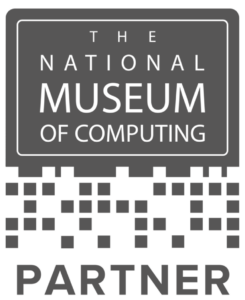What you get out of a conference/event presentation is an interesting question. Some of the knowledge or awareness you gain might not have any immediate or readily quantifiable use. However, you would hope that something within the delivered content strikes a chord, or maybe sets you on a path to improvement (no matter how slow that path may or may not be travelled).
A great example of an event presentation making a personal difference to me is Akshay Anand’s session on Cynefin at ITSM17. I’d previously flagged Cynefin in my head as worth investigation but, like a number of things that look interesting, I’d never really got around to looking at it in detail. So, Akshay’s presentation was a perfect way to introduce both myself and my organisation to its world of simplicity, chaos, and everything in between.
An at-a-glance overview of Cynefin
If it is new to you as well, Cynefin, pronounced kuh-nev-in, is a Welsh word that explores how our environment and experiences influence our decision making – which is more than we realise.
A brief explanation of its origin, evolution, and function can be seen in this video by Dave Snowden, one of the leading figures behind Cynefin’s development and ongoing promotion.
Cynefin offers five contexts or “domains” of decision-making: simple, complicated, complex, chaotic, and a centre of disorder.
- Simple/obvious – The simple domain represents the “known knowns”. There are rules (or best practice), the situation is stable, and the relationship between cause and effect is clear: if you do X, expect Y.
- Complicated – The complicateddomain consists of the “known unknowns”. The relationship between cause and effect requires analysis or expertise; there’s a range of right answers.
- Complex – The complexdomain represents the “unknown unknowns”. Cause and effect can only be deduced in retrospect. There are no right answers.
- Chaotic – In the chaoticdomain, cause and effect are unclear
Source: Wikipedia
Learning about Cynefin and IT service management (ITSM)
I personally found the Cynefin description, overview, and applicability examples in Akshay’s session very helpful, and if you are not familiar with the framework I highly recommend taking a closer look at it.
One point that Akshay made which specifically stood out for me is that in a service management world we can get into hot water if we apply the wrong Cynefin paradigm, in particular, if we treat a problem that is complex in nature as though it were complicated and find that analytical techniques that we thought sufficient don’t solve it.
Cynefin and my day job
As I mused on this, I felt that Cynefin could help my colleagues and I to get to grips with a scenario that has been troublesome in my organisation.
We have a situation where – when our ITSM world goes pear-shaped – people respond and where problems are addressable by standard processes these are applied. But there is a gap in between the “black and white” of standard and non-standard responses.
We had a case last autumn where it proved difficult to shift thinking from ‘we can deal with this down our standard route’ to ‘we need to think differently about this’. In the end, there were a number of causes which had combined to create our woes – one of them had been there since system implementation without us even realising!
It took exploring the issue from a number of perspectives to uncover all of the causes. They are now thankfully resolved, with improved diagnostics available, and we have confidence that the situation is more robust than it has ever been. But the fact is that we took too long to get to this point and suffered for it.
Sharing learning post event
When I returned from the ITSM17 event, I wrote a paper summarising Cynefin and how it could help my organisation in choosing appropriate resolution routes.
In particular I used the paper (and the concepts of Cynefin) to suggest why issues like the one described above needed to be thought about differently.
After this (and a further paper which went into more detail on specifics), we had a wider review of how we work together – including suppliers. This resulting discussion led to a shared understanding that issues/problems have a business-complexity level as well as a technical-complexity level. Also that we need to ensure that this is taken into account in deciding how to tackle issues.
Alongside this, an involved supplier has also bought into the need for improvement and has provided additional resource to work on how they deliver their service to us.
Filling the gaps
Along the way, I picked up an action related to how responses to ‘in between’ issues are handled. This connects back to something else that my musings (after Akshay’s talk) led me to – that we make working assumptions about the right paradigm to use when something new crops up, even if only through who we get to look at it. And that these could be wrong, with working out ways of picking this up early part of avoiding the perils of those ‘in between’ issues.
My efforts are now concentrated on improving the shared understanding of business complexity and ensuring that this is more actively considered as an integral part of responding to issues. This ties in with another memorable session from ITSM17 – Simon Kent’s tour-de-force presentation on “alignment”, but I’ll save that for another blog.
I’m not going to claim that without my Cynefin paper none of this would have happened, but it provided a launchpad, and I’ll keep referring back to it in my thinking. So, yes, the ITSM17 presentation had value, and its value is on-going.
If you have time, you might want to consider taking a deeper dive into Cynefin – Dave Snowden’s Cognitive Edge is a good place to start



